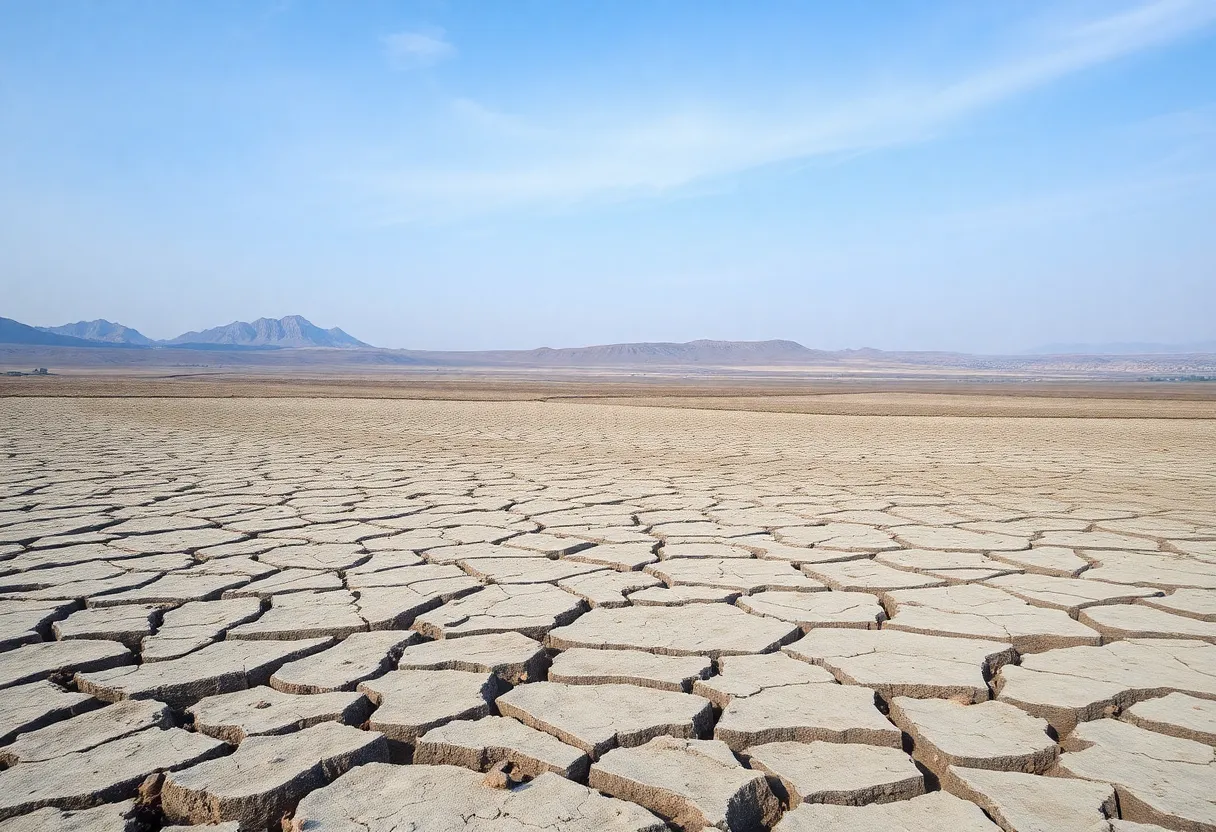News Summary
A severe global water crisis is intensifying due to worsening heat and drought, endangering billions of people. The scarcity of fresh water is leading to food insecurity, economic decline, and political instability. With two billion individuals lacking regular access to water, agriculture faces dire threats that may further elevate food shortages and health risks. Immediate action and infrastructure investments are essential to address these challenges and ensure essential water access for vulnerable populations worldwide.
New York City – A global water crisis fueled by escalating heat and drought is threatening to create an economic catastrophe for both local communities and national economies. This looming crisis is already impacting billions of people, with water scarcity leading to severe consequences including food insecurity, displacement, and political instability.
Approximately 2 billion people around the world currently lack regular access to fresh drinking water, with half of the global population experiencing water scarcity at some point each year. This crisis is exacerbated by climate change, which is causing intense heat and drought, particularly in arid regions such as parts of Africa and the Middle East.
The economic implications of continuing water stress are staggering. The World Wildlife Fund estimated the economic value of functioning freshwater ecosystems at $58 trillion (about €49.4 trillion) in 2023, representing nearly 60% of global GDP. Without adequate measures to address water scarcity, countries suffering from high water stress could face a projected 25% economic decline over the next two to three decades. Such effects may usher in a new era of food shortages, reduced economic activity, and ultimately, social unrest.
Impact on Agriculture and Food Security
Water scarcity poses a dire threat to agriculture, where lower crop yields can further worsen food insecurity and elevate health risks tied to poor sanitation. Recent data highlight a grim picture; the Horn of Africa experienced a severe drought from 2020 to 2023, leading to the deaths of 13 million livestock and leaving 20 million people facing acute food shortages.
Regions such as sub-Saharan Africa, where 40 billion hours are spent annually collecting water, find that this precious time could otherwise be used to earn an income or pursue education, further exacerbating economic hardships. This detrimental cycle impacts the livelihoods of the most vulnerable populations, especially rural communities in countries like India, which possesses just 4% of the world’s freshwater while accommodating 18% of its population.
Global and Regional Water Shortages
As climate change continues to affect precipitation patterns, Europe is also facing increasing water scarcity, with Germany reporting one of its driest winter-spring periods in early 2024. In England, projections predict water shortfalls by 2055 that could account for one-third of the country’s current daily usage. Competing demands for limited freshwater resources are rising among industries, particularly IT and agriculture.
The United States is not exempt from this crisis; an increasing number of households lack sufficient water access, resulting in an additional annual expense of about $15,800 related to healthcare and lost opportunities.
Potential Solutions and Infrastructure Challenges
Addressing the global water crisis will require substantial efforts, including major infrastructure projects such as dams and desalination plants. However, these solutions come with financial challenges that are becoming more pronounced due to anticipated economic declines. Even so, ensuring universal access to water and investing in sustainable water systems are critical next steps.
The European Union is preparing to tackle significant water consumption issues from data centers through a forthcoming Water Resilience Strategy set to launch in 2026. Meanwhile, ecological trauma continues, with a significant portion of the world’s freshwater ecosystems lost due to development and over-irrigation; since 1970, one-third of wetlands have disappeared.
Conclusion
The impending global water crisis stands poised to destabilize economies and threaten livelihoods across the globe. As demand for water increases amidst rising temperatures and extreme droughts, immediate and comprehensive action is necessary to manage water resources effectively. Failure to adapt could result in unprecedented social upheaval, especially for communities already struggling with the fundamental right to water.
Deeper Dive: News & Info About This Topic
HERE Resources
Significant Groundwater Depletion Threatens Global Water Supply
Court Blocks Land Transfer for Arizona Copper Mining Project
Arizona’s Groundwater Crisis: Alarming Depletion Linked to Agriculture and Climate Change
5 Essential Strategies for Achieving a Lush Lawn in Phoenix’s Hot Climate
Arizona Approves Historic Water Transfer to Support Urban Growth
Landscaping in Phoenix Requires Thoughtful Planning to Combat the Intense Heat and Arid Conditions
Phoenix Secures Federal Funding for Advanced Water Purification
Phoenix to See Increased Monsoon Activity This Week
Federal Funding Freeze Impacts Green Energy Projects in Tucson
Trump Nominates Ted Cooke for U.S. Bureau of Reclamation
Additional Resources
- DW: Global Water Crisis Could Cost Trillions
- Wikipedia: Water Crisis
- PR Newswire: Water Crisis to Water Security
- Google Search: Global Water Crisis
- Encyclopedia Britannica: Water Scarcity
- Indian Express: India is Grappling with a Water Crisis
Author: STAFF HERE PHOENIX WRITER
The PHOENIX STAFF WRITER represents the experienced team at HEREPhoenix.com, your go-to source for actionable local news and information in Phoenix, Maricopa County, and beyond. Specializing in "news you can use," we cover essential topics like product reviews for personal and business needs, local business directories, politics, real estate trends, neighborhood insights, and state news affecting the area—with deep expertise drawn from years of dedicated reporting and strong community input, including local press releases and business updates. We deliver top reporting on high-value events such as the Waste Management Phoenix Open, Cactus League Spring Training, and Arizona State Fair. Our coverage extends to key organizations like the Greater Phoenix Chamber of Commerce and Visit Phoenix, plus leading businesses in technology and healthcare that power the local economy such as Intel and Banner Health. As part of the broader HERE network, including HERETucson.com, we provide comprehensive, credible insights into Arizona's dynamic landscape.





